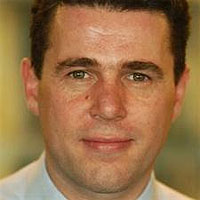Almost 1,500 of our members on universal credit have taken strike action for two days over increasingly oppressive working conditions.
The government's flagship social security scheme has been dogged by delays and allegations of money squandered on IT.
PCS say they have consistently raised complaints about a lack of resources, an oppressive management culture, inadequate training, hard to reach targets and staff shortages.
But instead of addressing these concerns, the Department for Work and Pensions has imposed new harsher conditions, including a massive scaling back of flexible working.
The strike on Monday 20 and Tuesday 21 July was held at the two original service centres in Bolton and Glasgow, where more than half of all universal credit staff are employed.
 PCS represents around 80% of staff at the centres that process claims to universal credit and take enquiries from claimants by telephone and online.
PCS represents around 80% of staff at the centres that process claims to universal credit and take enquiries from claimants by telephone and online.
In a ballot, 84% voted for strikes and 90% voted for other forms of industrial action on a 56% turnout. The two-day strike will be followed by industrial action short of a strike until mid-August.
PCS say that they have not ruled out balloting our members at the other universal credit sites in Bangor, Basildon, Dundee, Makerfield and Middlesbrough.
In a statement to the media, PCS general secretary Mark Serwotka described the DWP's introduction of universal credit as "disastrous" and "a textbook example of how not to reform essential public services".
"These harsher working conditions must be withdrawn," he added. "They simply heap more pressure on staff who have battled against poor IT, inadequate training and a lack of resources."
The strike saw a 95% turnout, representing almost 1500 workers at the 2 service centres in Bolton and Glasgow.
The dispute is about the imposition of new working conditions, in an environment where staff are already suffering from a lack of resources, an oppressive management culture, inadequate training, hard to reach targets and staff shortages.
Calum Walker, who is a rep based in Glasgow said:
“We are striking to try to safeguard the service we’re providing to the public.
The limits that management are imposing on flexible working mean that people are restricting themselves to their basic hours, and there is not enough cover to provide a good service over all the hours that we are open.”
Management will try to downplay the impact of the two-day strike but Calum went on to say:
“1500 people have failed to come into work over the last two days. Within a couple of hours of the strike beginning yesterday morning there will have been hundreds, if not thousands, of calls waiting in queues. This will then lead to other staff being taken off their normal work to try to catch up on the telephony work.”
Source: PCS